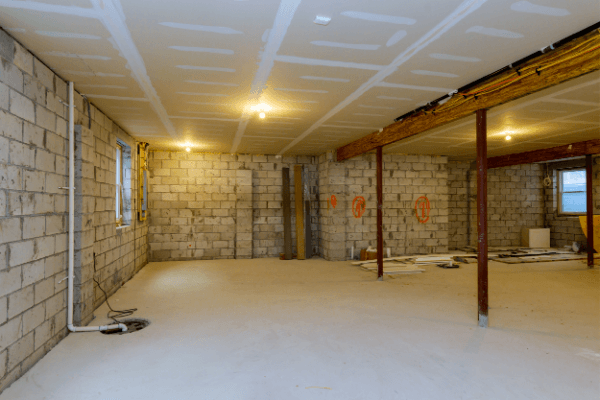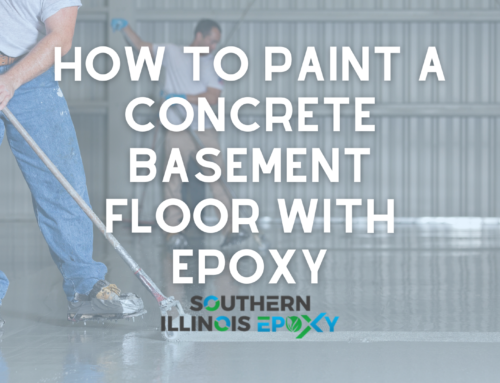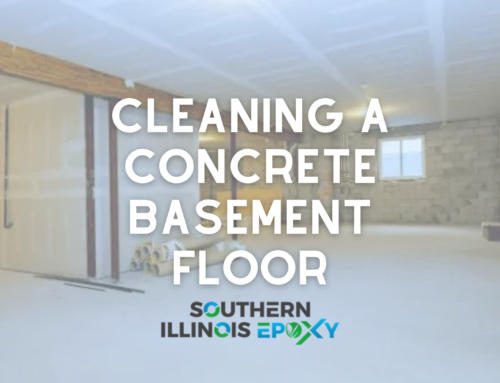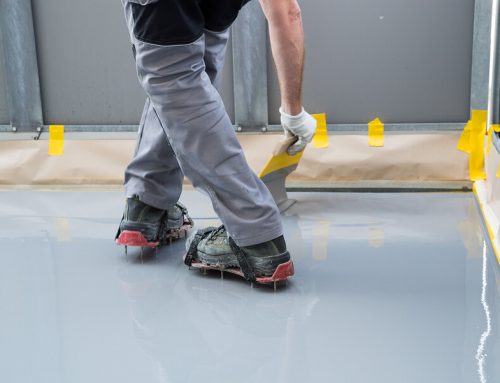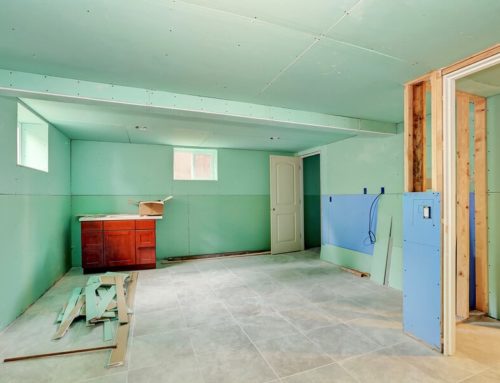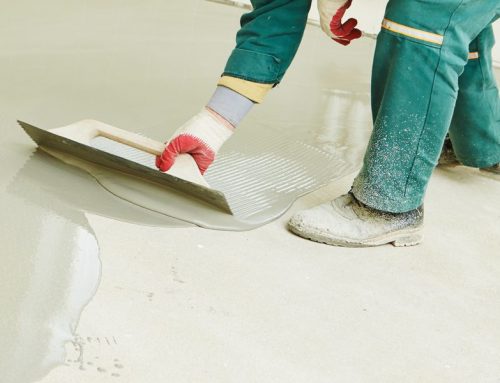When it comes to picking basement flooring options, we understand how challenging it can be. Basements come with a unique set of challenges that require a special floor surface to sustain whichever activity you intend to do. Since they are below the ground level, they tend to be prone to moisture, colder, and darker than the rest of the house, making it critical to choose a floor that can withstand these conditions, look good, and remain functional throughout its lifetime.
Another pain point about basement flooring options is the costs involved. Besides considering factors like water resilience, warmth, durability, comfort, and brightness, you must address the current condition of your floor. If your basement floor is uneven, it might require costly preparation to ready it for flooring. And the more they work, the more tough budget decisions you’ll have to make.
Questions to Ask Before Choosing Basement Flooring Options
There’s no one size fits all when it comes to basement flooring. Therefore, it’s crucial to ask yourself certain questions to settle on the perfect floor finish. That way, you know what to add and what to take away from your initial plan. The most important questions you need answers to include:
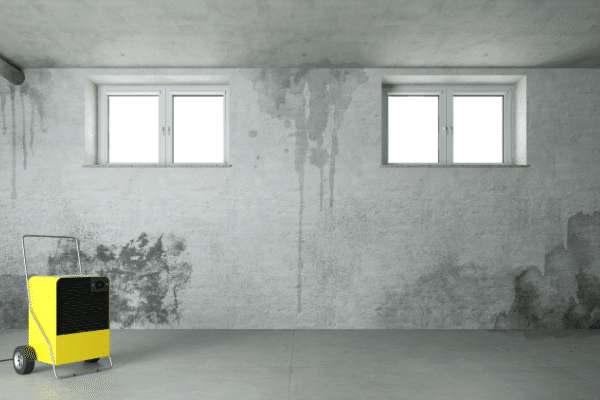
What do you want to use the basement space for?
You want to be sure you know what the use of your basement space will be. Do you intend the basement to be a family room or a home office? Is it a kid’s room? Are the children going to sit on the floors? Do you plan to host visitors in your basement? Looking forward to making it a store? Is it your workshop to be? Your basement floor choice will rely on who is going to be using the room and their behavior. You’ll agree that your preferences will widely vary from your kid’s.
What materials suit my basement floor?
Below grade rooms develop mold and rot easily if you choose the wrong material. You therefore ought to select materials that are resistant to moisture, mold, and rot. Then invest in a flooring expert to install the floors properly to avoid degradation over time. To narrow down on the basement floor for your needs, find out:
- How warm you want your floors
- If your basement floor gets wet or damp
- If water intrusion is common in your basement
- What your floor looks like presently
Flooring Systems That Won’t Perform Well as Basement Floor Options
If you live in places with risk of basement flooding or attracting moisture, choosing wood planks for flooring would be a big mistake. These materials draw mold plus mildew and eventually rot away with time. Avoid choosing multilayered floor systems as well because moisture would easily get trapped within the layers and compromise the quality of your floor. You also don’t want slippery floor materials because these moisture-prone areas can cause slipping for users. So what are the best basement floor options?
The right floor system for a basement should be a monolithic floor system (one-lay floor) to avoid trapping water. Also, synthetic materials will be more effective in moisture-prone areas.
The Best Basement Floor Options
There are tons of basement floor options for your home. But not all will serve the purpose. Some alternatives you might want to consider include:
- Vinyl tiling
- Marmoleum
- Ceramic/Porcelain tiling
- Carpeting
- Engineered wood
- Painted concrete
- Rubber floors
- Roll-out mats
- Concrete basements
- Epoxy flooring
- Stained concrete
Out of all these flooring options, our opinion is that only two can stand the test of time, be functional, and add aesthetic value to your basement: Stained Concrete, and Epoxy flooring. Here’s why:

Stained Concrete
Stained concrete is the second-best basement flooring solution after epoxy. It produces very durable floor surfaces that protect against falls, staining, liquid drips. Also, it allows you to come up with artistic designs using a variety of colors, making it ideal for complementing your interior design. The best part about stained concrete is that, in the hands of an expert, you always get a unique floor that you’ll never get anywhere else.
You can go with water-based staining that provides you a larger color palette and gives you the liberty to dilute or blend your colors. Or acid based staining which reacts with the concrete to produce various permanent color shades. If you want a unique floor outcome, acid based stains are the perfect choice.
Benefits:
- than epoxy
- Resistant to damaging elements
- You get a variety of designs and colors
- Very durable
- Waterproof
Epoxy
If we are to advise you on the best basement flooring solution, epoxy would be at the top of the list. Epoxy is an industrial-grade material that combines resins and hardeners to make very durable floors. It’s the perfect choice if you intend to use your basement for long, even in tough conditions. If you have epoxy installed, you can trust it to handle any use including storage and as a workshop without worrying about chipping and cracking
You can customize epoxy to attain any color and pattern you desire. And its glow surface makes lighting your basement affordable. And the best part is that maintaining it is very easy. Through vacuuming, sweeping, and mopping, you retain its sheen and general condition.
You can also choose metallic epoxy, which is epoxy but with metallic flakes that improve the aesthetics of your basement. With proper installation, this option is still as effective as your regular epoxy.
Benefits:
- Easy to maintain
- Withstands longtime abuse
- Is waterproof
- Glowy surface
Should I DIY my Basement Floor?
Most people consider basements as extra space that they could use as they wish. Because of this, some do the flooring on their own thinking, “it’s not like the rest of the house”. It’s true that your basement is unlike any other part of your home, and that’s why it requires expert attention. The unique challenges basements present would be better addressed by flooring professionals like Southern Illinois Epoxy. A flooring pro will not just floor your basement but also advice you on what to do to make it last.
There’s a range of flooring systems you can choose for your basement floor. But not all will be as effective as concrete stains, concrete polish, and epoxy. These are the options to go for if you have longevity, quality, and beauty in mind.


